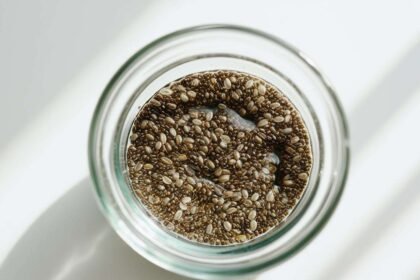Understanding the critical role of systemic inflammation in your health is the first step towards safeguarding your well-being. This silent culprit contributes to a spectrum of health issues, from heart disease and diabetes to autoimmune disorders.
Recognizing the signs and sources of inflammation allows for targeted interventions to mitigate its impact, paving the way for a life marked by vitality and health.
In this article, courtesy of Bestratedhealth, we deep dive into effective, natural approaches for managing systemic inflammation, setting the stage for a comprehensive exploration of lifestyle adjustments that promote healing and balance.
The Nature of Inflammation
Inflammation is the body’s instinctive response to harm, acting as a call to arms for the immune system to repair tissue and ward off harmful invaders. Yet, the shift from acute, beneficial inflammation to a chronic state can have detrimental effects on health, often without overt symptoms until substantial damage has occurred.
Recognizing and addressing chronic inflammation is crucial for maintaining health and preventing a range of diseases, underscoring the importance of early intervention and sustained management strategies.
Dietary Defense Against Inflammation
Diet plays a pivotal role in influencing inflammation levels. Emphasizing anti-inflammatory foods—such as vibrant fruits, vegetables, whole grains, and sources of omega-3s—can significantly dampen inflammatory responses.
In contrast, reducing intake of refined sugars, processed foods, and unhealthy fats is equally critical. This dietary shift not only curtails inflammation but also enhances overall health and energy, illustrating the power of nutrition in controlling inflammation and fostering wellness.
Exercise as an Anti-Inflammatory Tool
Regular physical activity stands out as a powerful antidote to inflammation, offering benefits that extend beyond weight management to include reducing inflammation-inducing markers.
Activities as accessible as walking, cycling, or yoga can profoundly impact inflammation levels, and these can be done fairly easily even during breaks at work.
Incorporating these practices into daily life, regardless of a packed schedule, underscores the feasibility and importance of exercise in an anti-inflammatory lifestyle.
Weight Management and Inflammation
The link between excess weight and inflammation is well-established, highlighting the significance of achieving and maintaining a healthy weight for inflammation control. Strategies such as mindful eating, portion control, and prioritizing nutrient-dense foods are instrumental in this endeavor.
This holistic approach to weight management not only combats inflammation but also reduces the risk of associated chronic conditions, demonstrating the dual benefits of a balanced diet and regular physical activity.
Stress Reduction
Chronic stress is a known trigger for inflammation, making stress management a critical component of an anti-inflammatory lifestyle. Techniques such as meditation, deep breathing, and engaging in enjoyable activities can markedly reduce stress and its inflammatory consequences.
Addressing stress through these practices not only lowers inflammation but also improves overall quality of life, highlighting the interconnectedness of mental well-being and physical health.
Supplementing with Care
Certain supplements, like omega-3 fatty acids and capsaicin, have shown promise in lowering inflammation. However, consultation with a healthcare provider is essential before beginning any supplement regimen to ensure safety and appropriateness.
This cautious approach to supplementation complements dietary and lifestyle modifications, reinforcing the multi-pronged strategy necessary for effective inflammation management.
Lifestyle Modifications
Smoking cessation and moderating alcohol consumption are critical actions for reducing inflammation. These lifestyle choices have a direct impact on inflammation levels and overall health, offering clear pathways for improvement.
Similarly, prioritizing quality rest is vital for regulating inflammation, with strategies for better sleep hygiene and regular schedules forming the cornerstone of an anti-inflammatory lifestyle.
These adjustments in habits and routines are integral to reducing inflammation and enhancing well-being.
Tackling systemic inflammation requires a holistic and proactive lifestyle approach, integrating dietary changes, regular physical activity, stress management, careful supplementation, and healthy habits.
By embracing these strategies, you can effectively manage inflammation, laying the groundwork for a healthier, more vibrant existence.
This journey towards an anti-inflammatory lifestyle not only improves your present well-being but also protects your health in the years to come, empowering you to enjoy a life full of energy and vitality.
Bestratedhealth offers a variety of wellness resources, from tips on weight loss to ways to find a doctor in your city. Have a question for the team? Reach out today and get in touch.












